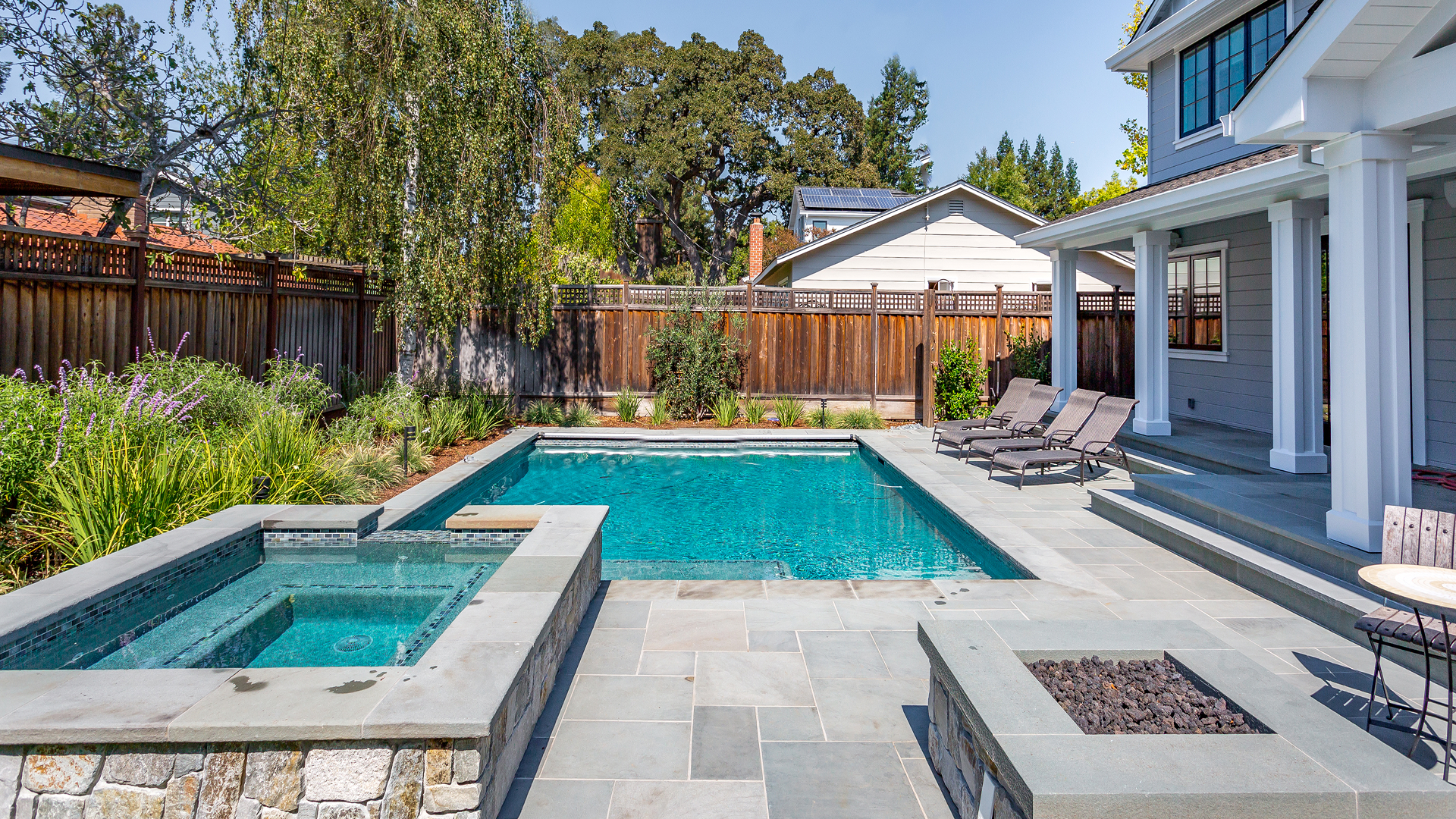Pool water maintenance is essential to ensure safe, enjoyable, and long-lasting swimming. One of the first decisions to make: should you choose a salt system or traditional chlorine? This question often comes up for pool owners, especially at the start of the season. Each method has its advantages and specific characteristics. At Aqua Master, we help you better understand the differences so you can choose the solution best suited to your lifestyle, budget, and setup.
Saltwater Pool
Contrary to what one might think, a saltwater pool still uses chlorine. The difference lies in how it is generated. Through an electrolysis system, the salt dissolved in the water is transformed into natural chlorine, directly in the pool. This process ensures a continuous, more stable, and automated distribution of the disinfectant.
Chlorine Pool
Traditional chlorine comes in the form of tablets and granules, which are manually added to the pool water. Its role: to disinfect the water by eliminating bacteria, algae, and other contaminants. It is a proven and cost-effective method upfront. There are also specialized products available, such as long-lasting formulas or ones enriched with zinc to better prevent algae growth.
Advantages of Both Methods
Salt System
- Provides softer water for the skin and eyes
- Reduces the odors associated with chlorinated products
- Keeps the water disinfected by producing chlorine from dissolved salt
- The superchlorination function allows the device to adjust chlorine production as needed, especially during heatwaves or after heavy usage
- The salt system reduces the use of chemical products since there’s no chlorine to mix, measure, transport, or store, making daily maintenance easier
- It’s also a convenient solution when you go on vacation, as the system continues to maintain proper disinfection levels in your absence
Traditional Chlorine
- Fast and effective action against bacteria, algae, and contaminants
- More economical compared to installing a salt system, which also requires cell replacement after a few years
- Ideal for targeted treatments (cloudy water, algae growth)
- Product stability: long shelf life without loss of effectiveness
- Lower risk of equipment corrosion
What to Consider in Québec
Québec’s climate presents specific maintenance conditions. The summer season is short, but pool usage is often intense. Whether you opt for a salt system or traditional chlorine treatment, both options can effectively meet the needs related to this reality. Heatwaves, storms, or temperature fluctuations directly affect water quality. A good treatment system—whether salt or chlorine—should allow you to quickly adjust parameters to maintain clear and safe water. The choice ultimately comes down to your preferences, your comfort level with maintenance, and the type of experience you’re looking for.

A Solution That Fits Your Daily Life
Salt or chlorine, each option offers real benefits to help you fully enjoy your pool all summer long. The key is to choose the one that suits your reality: your lifestyle, your maintenance habits, and your priorities when it comes to comfort and simplicity.
Still unsure? Visit us in-store or contact one of our Aqua Master experts. We’ll take the time to guide you toward the solution best suited to your needs. Whether it’s for advice, a product, or personalized support, our team is here to make pool maintenance easier for you.




Leave us your comment